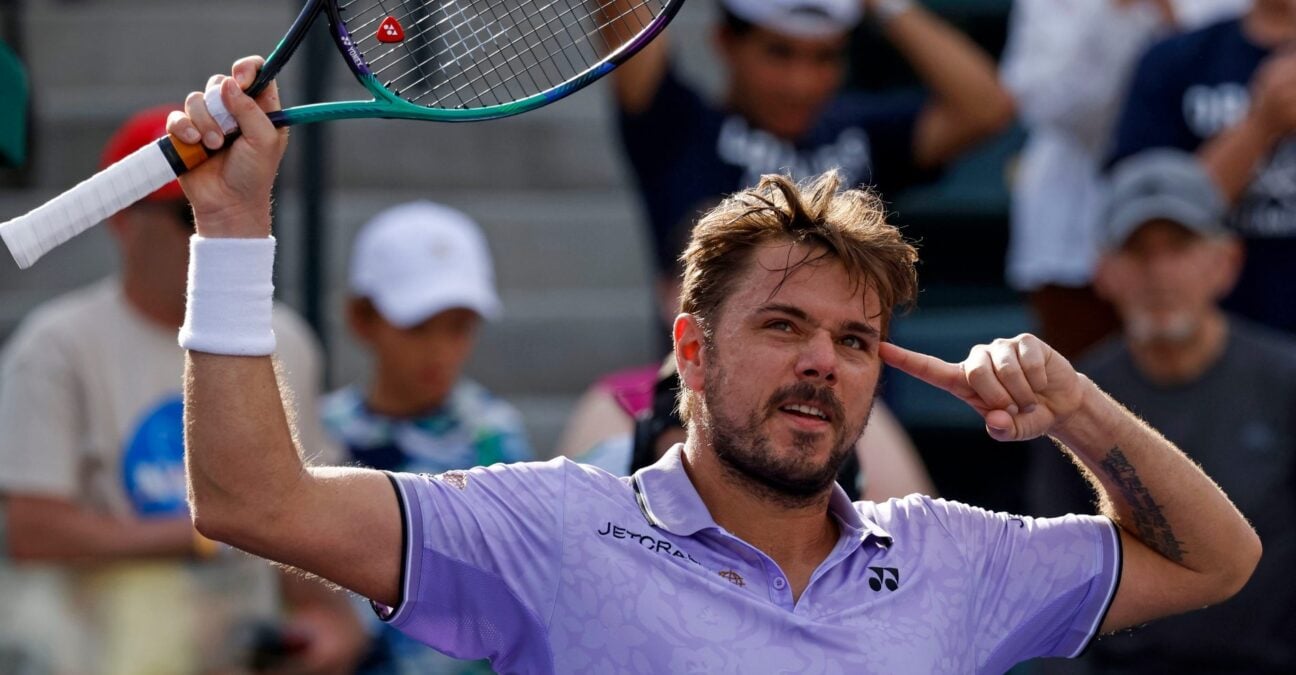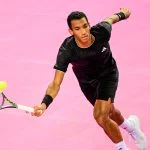Why Mental Strength Defines Success in Modern Professional Tennis
Tennis is a very mental game, where players have to maintain focus, composure, and clarity to win matches.
 Stan Wawrinka, Indian Wells 2023 – © Zuma / Psnewz
Stan Wawrinka, Indian Wells 2023 – © Zuma / Psnewz
Professional tennis is a relentless battleground where stamina, skill, and strategy intersect under intense pressure. Matches can stretch for hours, and the margin between victory and defeat often boils down to more than just talent. What truly separates the greats from the rest is their ability to maintain focus, composure, and clarity when every point matters.
A growing number of fans and players alike are turning to immersive entertainment like desi roulette to experience that same edge-of-your-seat intensity. Much like professional tennis, this dynamic live game rewards those who combine patience with fast, calculated decisions, reflecting the same mental sharpness needed on court.
Pressure Moments Define a Player’s Legacy
Top-tier matches often come down to just a handful of crucial points. Grand Slam finals, especially, reveal a player’s mental toughness. Think of Novak Djokovic saving match points at Wimbledon, or Rafael Nadal grinding through five-set battles on clay—these are not just displays of athleticism but psychological warfare.
Competing in packed stadiums, with millions watching worldwide, introduces a level of stress that training alone can’t replicate. Players must remain composed under the weight of expectations, especially during tight service games or when trailing on the scoreboard. Even minor mental lapses can cost a set—or a tournament.
To excel, professionals work closely with sports psychologists, train in mindfulness, and rely on specific routines to block distractions. Without this inner strength, even the most talented athlete can crumble when the match is on the line.
The One-on-One Nature of Tennis Intensifies Mental Strain
Unlike team sports, tennis players stand alone. No substitutions. No timeouts. No coaching during most matches. This solitude amplifies the pressure, forcing players to solve problems independently in real-time.
What Makes This Isolation So Demanding?
- Players must adapt tactics mid-match without external input.
- Momentum shifts quickly, requiring emotional control.
- Unforced errors can haunt a player’s mindset if not quickly shaken off.
This mental rollercoaster pushes players to their psychological limits. The best performers are those who not only stay calm but also rebound from mistakes instantly—an ability built through years of experience and rigorous mindset training.
Emotional Intelligence and Composure Under Fire
A strong forehand or booming serve means little if a player can’t manage emotions. Matches are long, grueling, and emotionally draining. Emotional intelligence—the capacity to stay in tune with one’s thoughts and reactions—is essential.
Professional players are now embracing techniques like visualization, breathing exercises, and journaling. These tools help regulate stress and prepare the mind for adversity. By strengthening emotional awareness, athletes develop the resilience needed to bounce back from setbacks, whether it’s a double fault or a lost tiebreaker.
Building Mental Resilience from Junior Level
The journey to professional tennis doesn’t start on the center court—it begins in junior tournaments where young athletes are first tested. Developing mental fortitude early on is critical, and coaches now emphasize mindset alongside mechanics.
Key Elements in Mental Conditioning:
- Simulated high-pressure match play
- Positive reinforcement after losses
- Setting short-term goals to maintain motivation
- Learning to detach results from self-worth
These lessons, learned young, shape future champions who know how to battle through five-set marathons or face down hostile crowds.
Technology’s Role in Sharpening Mental Edge
Modern tennis has embraced tools that help players assess not only their physical performance but also their mental state. Heart rate monitors, reaction-time trackers, and concentration-measuring software now complement traditional coaching methods.
Biofeedback tools, for instance, alert players when stress levels spike, allowing them to train calming techniques that kick in when needed most. Virtual reality is also being explored to simulate high-pressure situations, giving athletes a mental “rehearsal” for what they’ll face during big matches.
Conclusion: The Mind Is the Ultimate Weapon
Elite tennis demands more than speed or strength—it requires mastery over one’s thoughts and emotions. The most consistent champions are those who turn inward during chaos, using their mental tools to weather any storm.
As tennis continues to evolve, the spotlight will shine even brighter on psychological preparedness. With growing awareness and resources, tomorrow’s stars will be trained not just to hit winners—but to think, feel, and compete like champions from the inside out.











